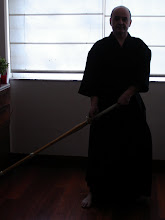For thousands of years tea has been an integral part of Asian diets and cultures. Long renowned for their calming, ritual and healing properties, Chinese tea is a mainstay in the life of millions. Multitudes of studies have been carried out on different types of tea and herbal tea preparations, but understanding the differences between them can be daunting. But with a little guidance and effort you can find a tea suited for just about any health issue you may need to relieve.
Traditional Chinese medicine (TCM) is one of the oldest healing traditions on the planet. It dates back at least 5,000 years. One of the main components of TCM is herbal medicine, and boiling herbs to drink as “teas” is among their common uses.
Medicinal herbal teas in TCM do not usually contain actual tea. Rather, they are a combination of different herbs, plants, roots and so on that is processed in specific ways and boiled together to make a “tea.”
Bojenmi Tea promotes weight loss as a healthful side effect. It helps you lose weight by strengthening the organs; detoxifying the liver, kidneys and intestines; moving stagnant energy; drying interior dampness and breaking up phlegm; and promoting urination to remove toxins.
Shen Tea is a traditional herbal tea containing over six different herbs that when combined help to nurture the heart and mind, ease stress, calm the spirit, soothe the liver, improve eye and heart health, calm the nerves, balance the emotions, reduce irritability and anxiety, and improve sleep.
Yin Yang Classic Tea is used to nourish the blood and boost energy. It is made by combining reishi mushroom, ginseng and licorice to help boost the immune system through its antioxidant and adaptogenic properties.
Panta Tea is made from the herb jiao gu lan, whose effectiveness and use is similar to ginseng, which means it helps boost energy, move body fluids, remove toxins from the body and it also helps lower cholesterol, alleviate symptoms of stress, lower blood pressure and even do wonders for bronchitis.
In addition to these TCM herbal teas, there are many more types of benefits of tea. I recently had a conversation about Chinese tea with Robert James Coons, a passionate tea merchant near Toronto, Canada, about the various aspects of Chinese tea. I’d like to share some of that conversation with you here.
What are the main categories of Chinese tea?
Chinese tea has six main categories: 1) green, 2) red, 3) oolong, 4) black, 5) flower, and 6) white. There are also sub-categories which may be considered as different cultivars or production practices for individual teas.
This is a part of a post by Dr. Mark Wiley at Tambuli Media | Jul 3, 2016 | Chinese Medicine, Diet & Nutrition, Health
http://www.tambulimedia.com/2016/07/03/overview-medicinal-chinese-tea/?fb_ref=Default&fb_source=group
 In any engagement, the ultimate winner will always be the one with the spirit of a hawk. Concentrate on this. . . . You simply cannot sit around afraid of what the opponent might do. The same holds true for your individual conflicts. If you face an opponent with the thought that he is a master technician and strategist, then you have already lost. Be the hawk, not the pheasant. Never accept an inferior position to anyone. It is the strongest spirit that wins, not the most expensive sword. -
In any engagement, the ultimate winner will always be the one with the spirit of a hawk. Concentrate on this. . . . You simply cannot sit around afraid of what the opponent might do. The same holds true for your individual conflicts. If you face an opponent with the thought that he is a master technician and strategist, then you have already lost. Be the hawk, not the pheasant. Never accept an inferior position to anyone. It is the strongest spirit that wins, not the most expensive sword. - 
